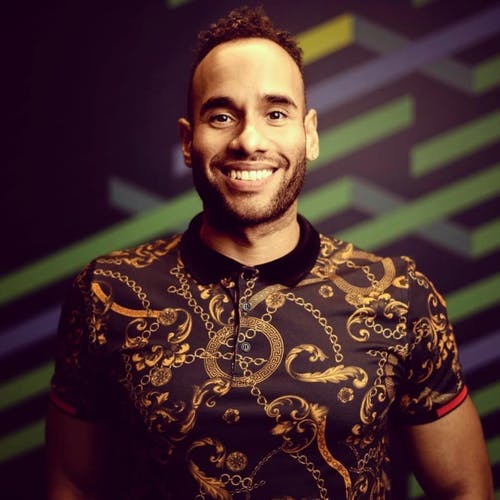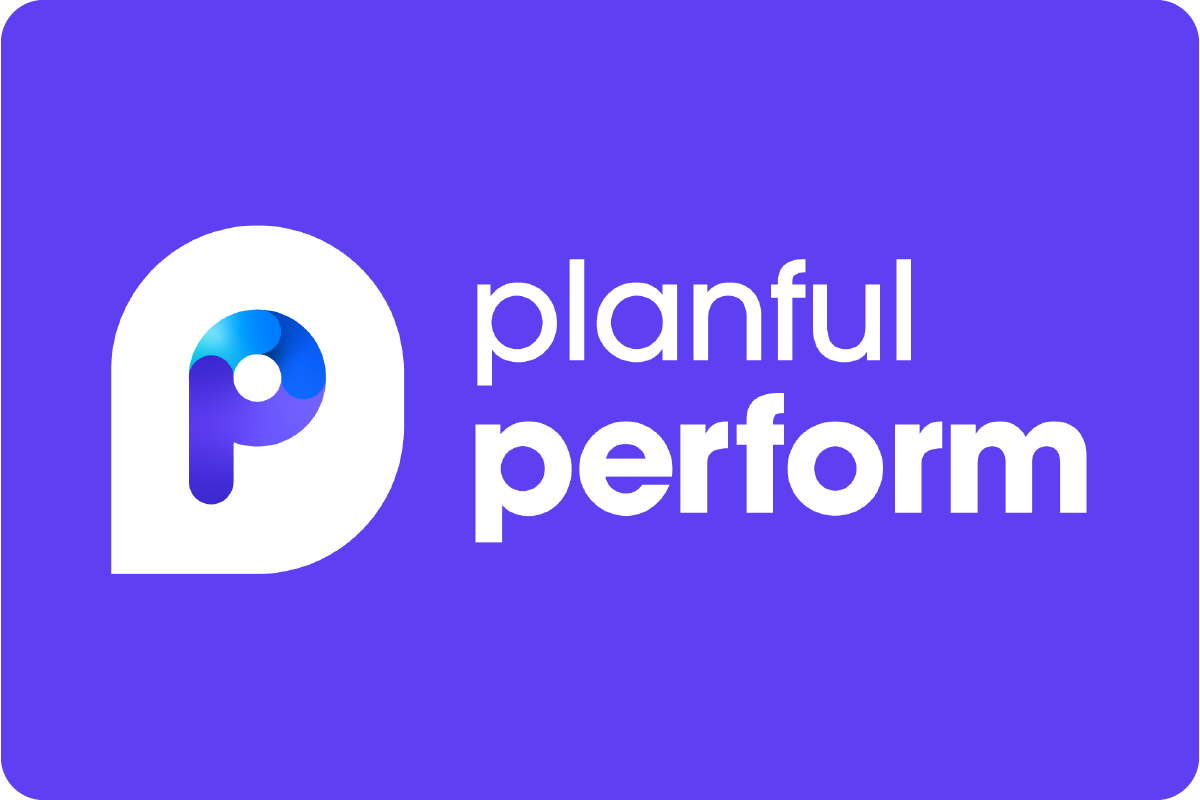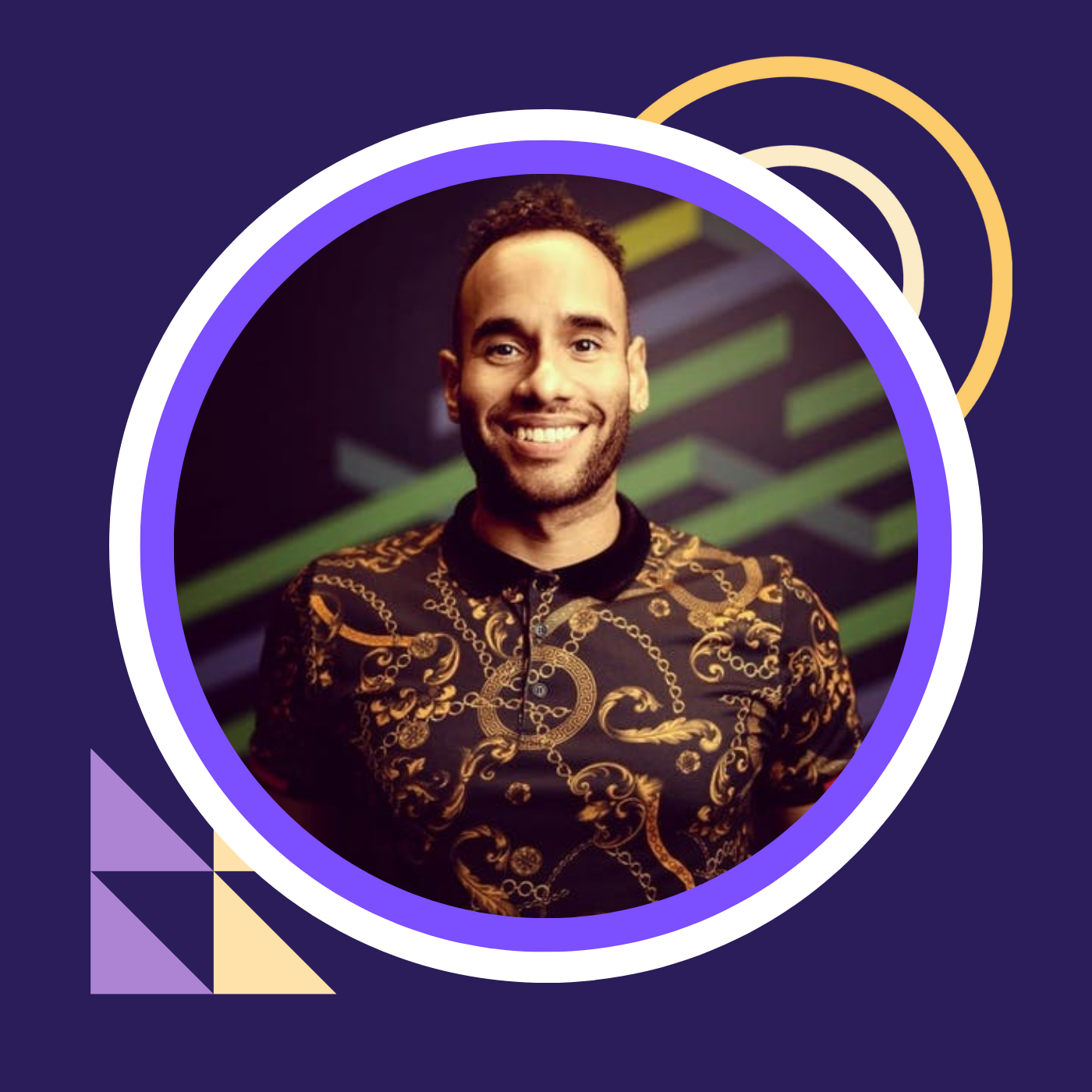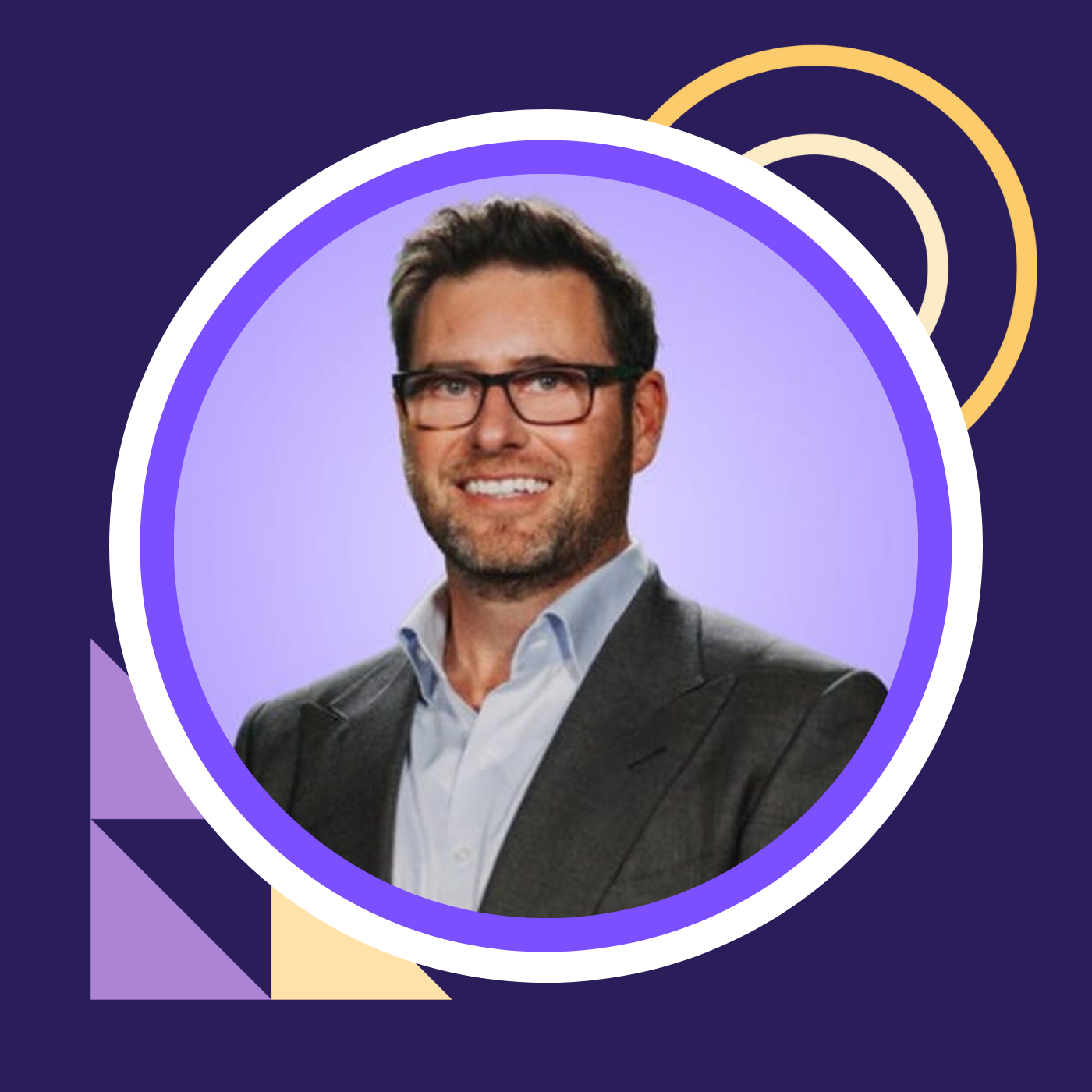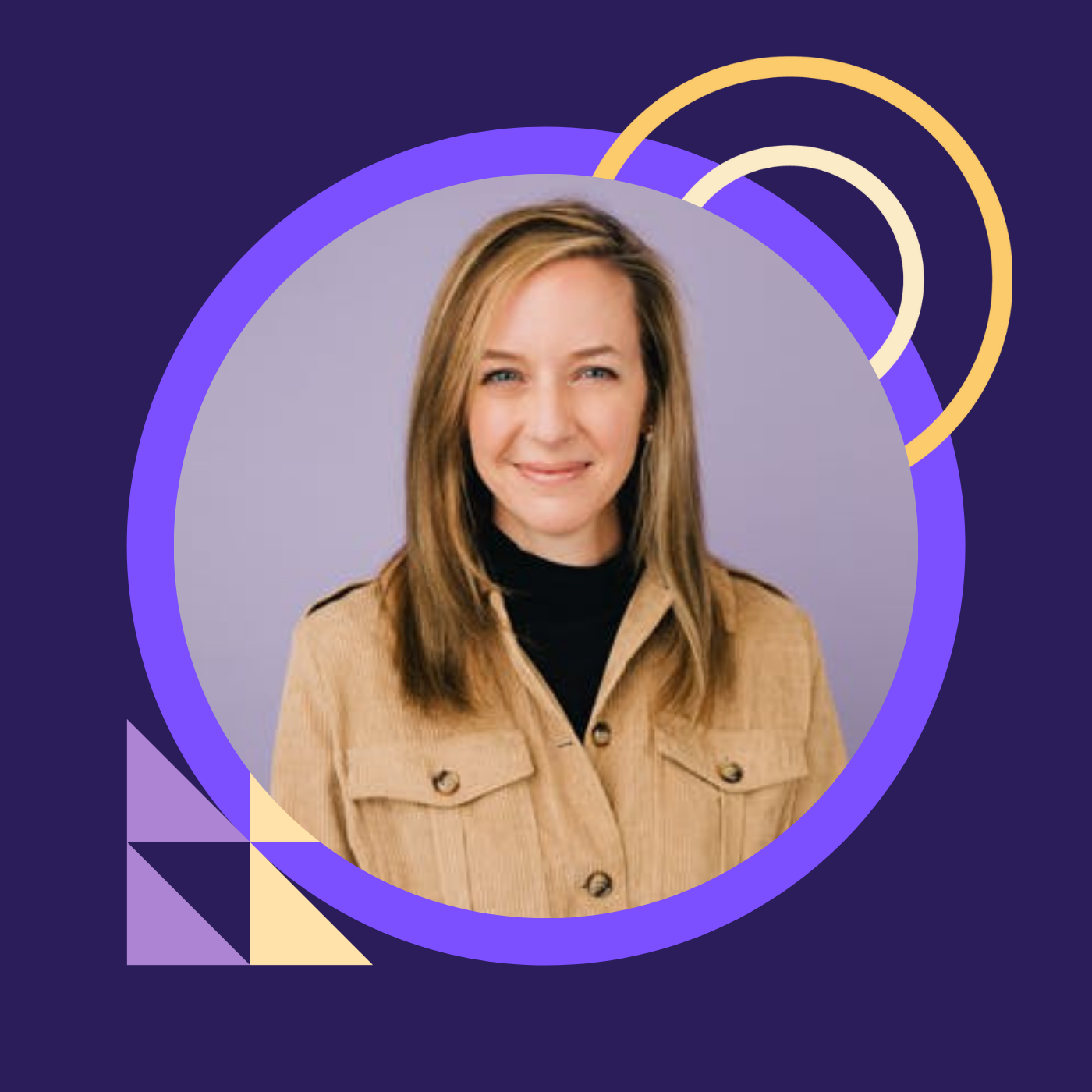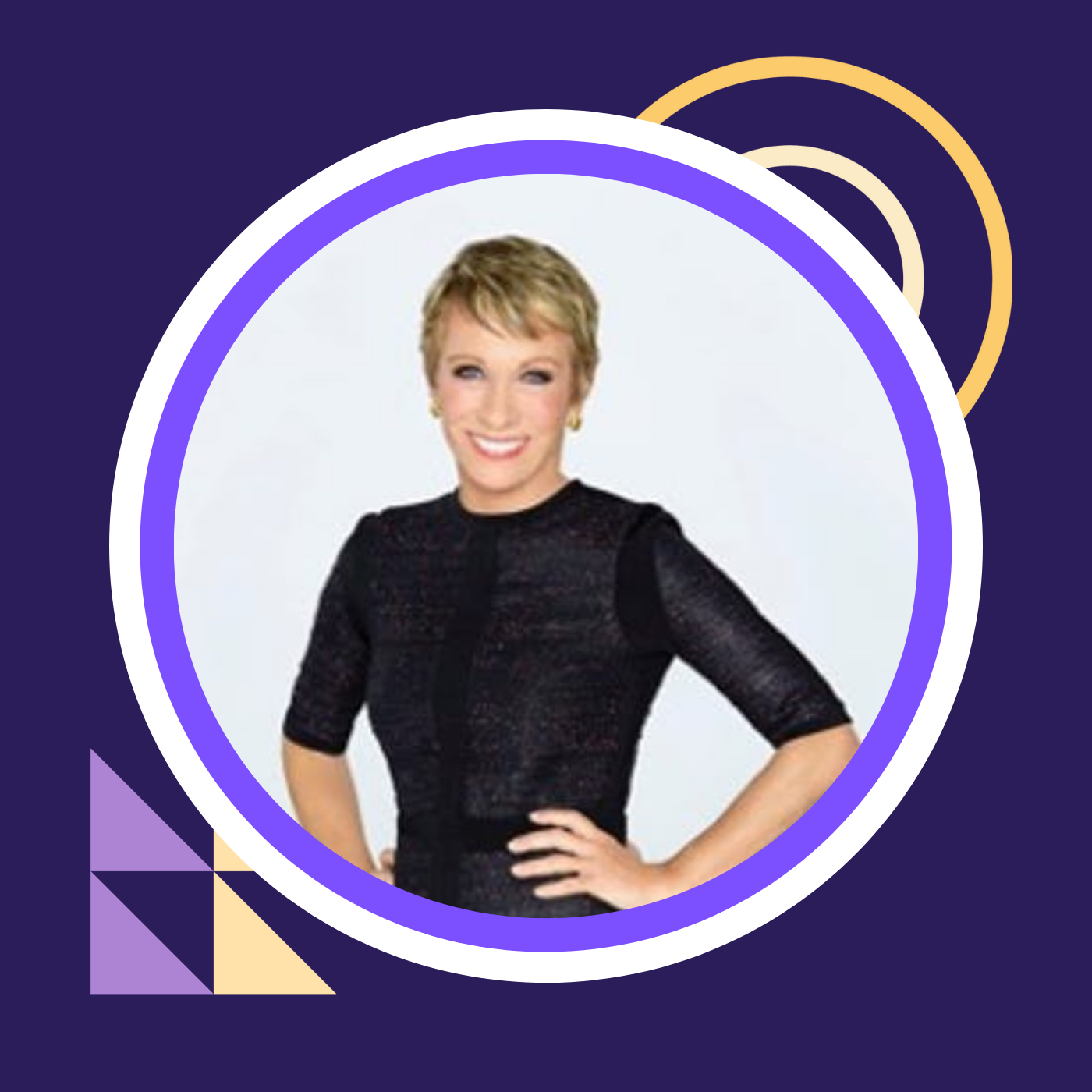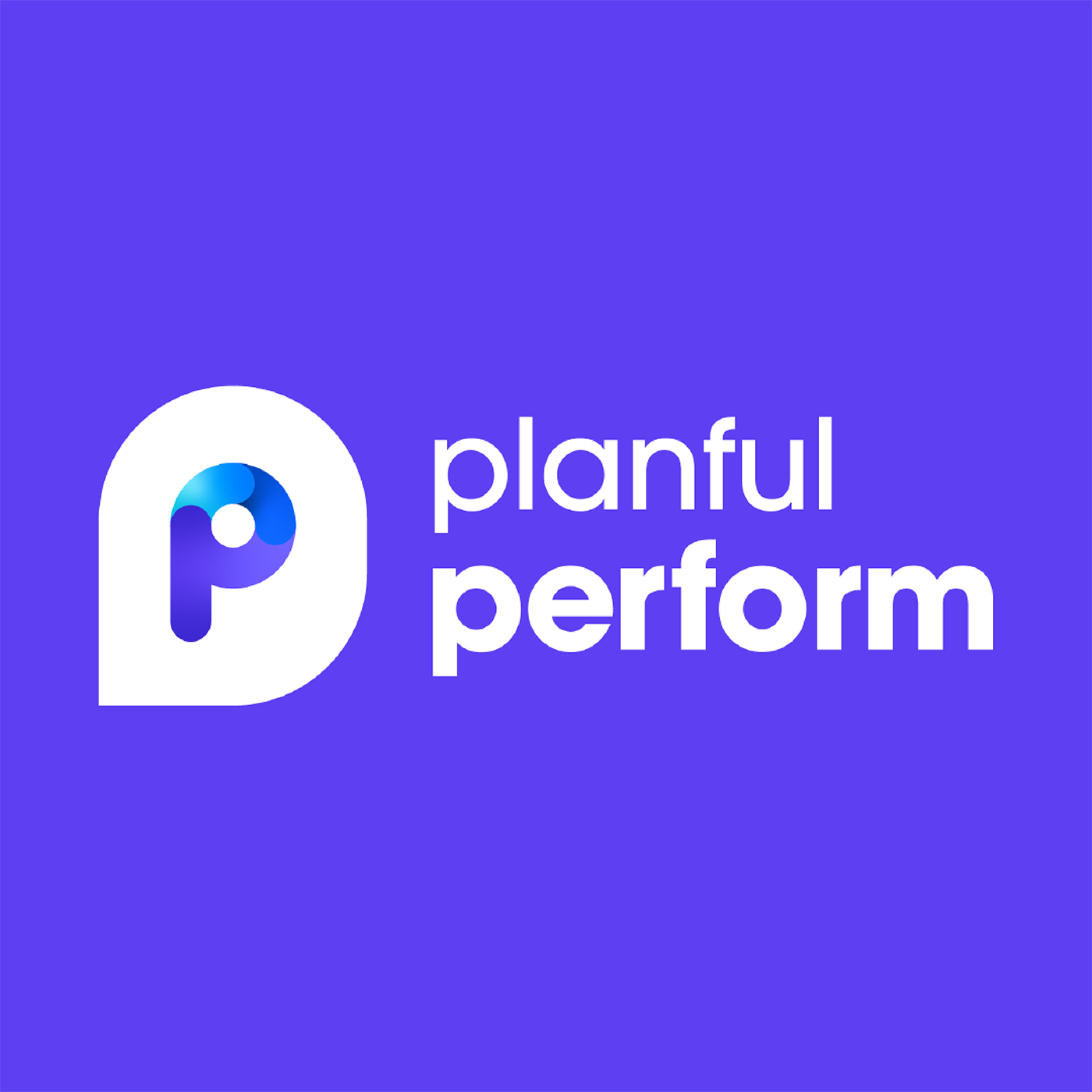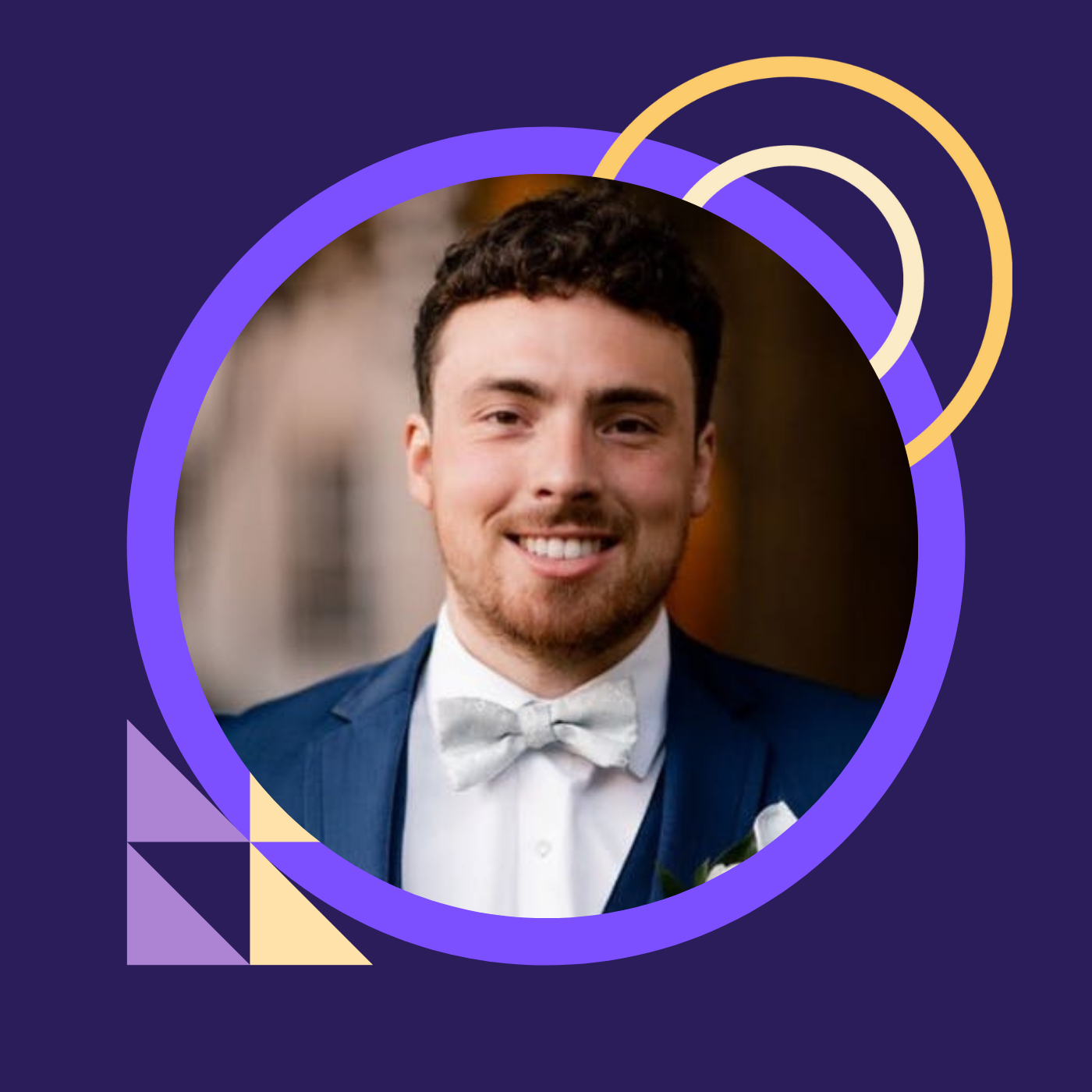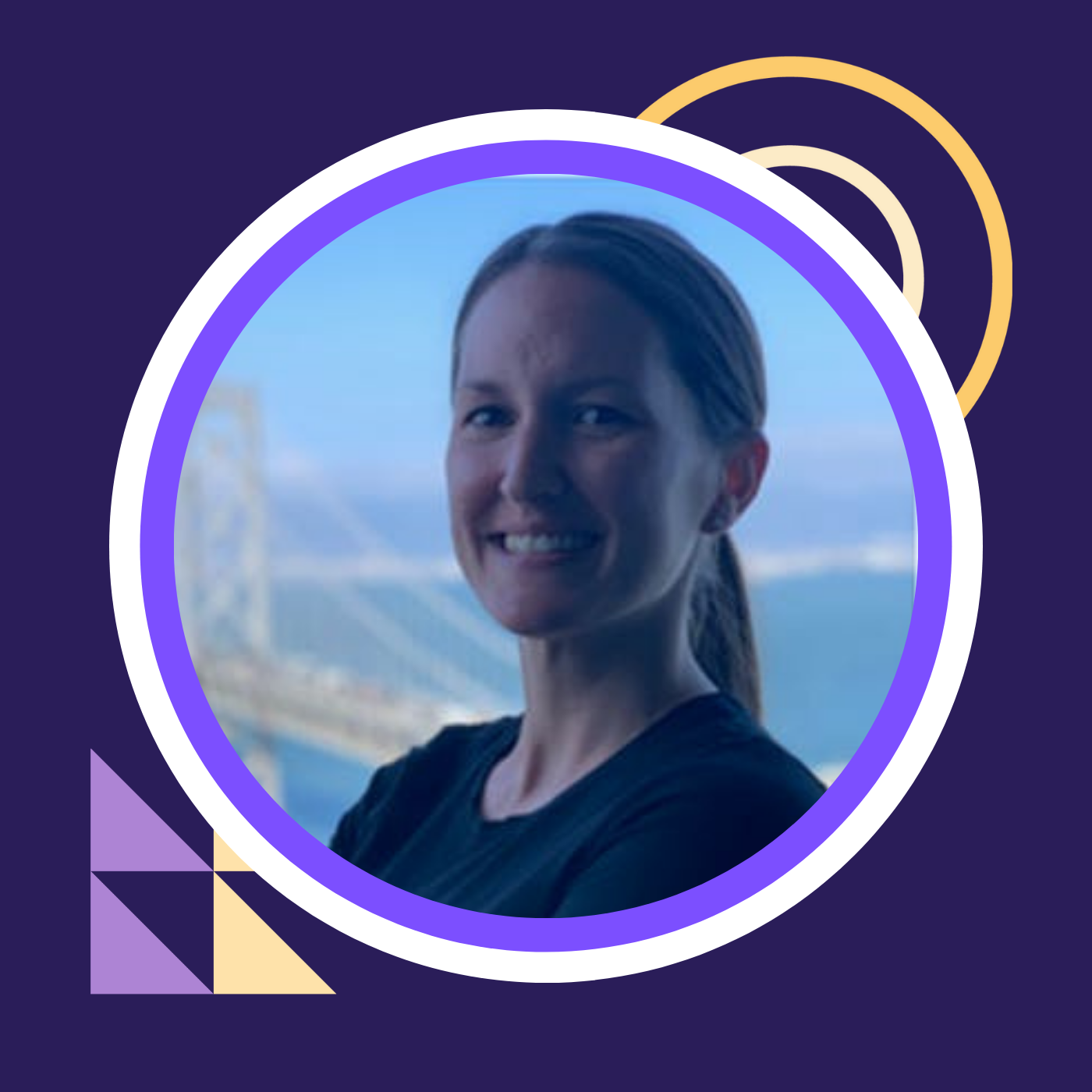Shifting Finance to Combine Empathy and Data-Driven Decision-Making | Chris Ortega
- 0.5
- 1
- 1.25
- 1.5
- 1.75
- 2
Chris Ortega: ...last couple, three of the conference right now, man. It's like the last three, the last standing. This is the last series of the conference. So far for everybody it's been good, though. I really love the last three presenters earlier. That was dynamite. So one of the closers for you, Chris Ortega, I'm going to be sitting here talking with you about shifting finance to combine empathy. And what's your name? You called me out on it.
Janet: Janet.
Chris Ortega: Janet. It should be data- driven decisions after that. That is my mistake. The font size was too big, so it got carried over. Janet, thank you so much for that call- out. Keeping me on my toes. Tell you a little bit about myself. So what am I? Right here, Lisa, my initials are CEO. So I'll tell you a funny story about that. When I was growing up, my mom... I come from a single- parent background. I have a twin sister. Her name is Victoria. And me and my twin sister, we are literally polar opposite in everything. I'm introverted. She's extroverted. It's a joke. It's the other way, right? You're like," No way you're introverted. How do you put this on? You got to be exhausted when you get done." But we're so different. And I remember growing up, and my mom sat me down amongst... My mom was a great parent, and one of the things she set me down with, and she was like... She called me Bunny. That's her nickname. Please don't call me Bunny or put it on social media. It's like," We heard Bunny present." That's my nickname going forward. We should do that in other podcast. We're like,"Well, here we're Rowan, Glenn and Bunny." But she sat down with me, and she said," Bunny, let me talk to you real quick." She's like," Do you know what your initials mean?" And I was like," Nah. What does it mean?" She was like," Your initials are the highest level of any organization, any level of business. That's the highest level." And I said to my mom, I'm like," So I'm a fireman in the business?" She's like," Exactly. You are a fireman when it comes to business." And I always use that as a joke. Actually, funny story about that too. When I was leaving public accounting, I was leaving Ernst& Young, and I'll never forget this. I was interviewing with this law firm called Bakers and Daniel in Indianapolis, Indiana. And I'm sitting across... Her name was Paula. I remember exactly what I was wearing. I remember everything around this. And she asked me a question. She said," Chris, tell me something unique about yourself." And I'm right out of public accounting, looking to transition into finance. And I was like," Well, my initials are CEO, and one day I want to be a CEO." And the cringe on her face. She was like," Oh my God." And I was like I knew at that moment I did something wrong, but I didn't know what I did wrong. She said," Tell me something interesting about you," and I'm like," I got the best initials in the world, and one day I'm going to be a CEO." Just a fun fact. I ended up talking to a good friend of mine. He was a recruiter. His name is Doug Rowe. He says," Chris, man, what happened in the interview?" I was like," Uh, it started off really rocky, but I don't know why. Can I get some feedback?" He was like," Man, you never start off an interview saying you want to be the CEO. That just is like..." And I was like," Why not?" Still don't understand why, but needless to say, I never used that in interview again. Other things about me, I've been in the accounting, finance, FP& A, fractional CFO space for a little over 15 years. I was alluding to a little bit about my background. Started off at Ernst& Young. Any Big Four people in here? Former Big Fours? Yes. Any EOI in here? Yes. Okay, I'll remember you too, because when we go to Jewel, we're doing shots. It's going to be us. But I started off in public accounting, and I went into my first entrepreneur venture, which was ChaCha Search, super cool, like SaaS business. It basically did natural language processing way before the prevalence of internet. And then I jumped into pharmaceutical drugs. And then I've been on the road of like high- growth entrepreneurial SaaS businesses, basically seed, startup, scale up to exit is basically what I do. And I've told a story about this earlier. I'll tell you another story about Ernie that I won't share earlier. That's my dog. That's actually like my son. I don't even consider him my dog. And yes, I am one of those dog people that if you want to see pictures, I got a whole album. Here's Ernie at Christmas time. Here's Ernie when he gets his favorite like pup cup. Here's Ernie when I leave the gym. I literally have. And sometimes I'm on flights and I'm sitting next to that person, and I'm sitting there looking at pictures of my dog and making them all funny and stuff. And I was sitting next to this lady. She was like," Oh my God. Who's that little love nugget?" I was like," You call them love nuggets too?" But she ended up talking to me for an hour, and I was like, lady, I thought that was going to be like a 15- minute span and we're going to like vibe. And then like I need to chill. I'm not talking to you for an hour. So I got Ernie. I went to a dog park. I had some friends. I went to Eagle Creek Park right up the street from my house, and I'm sitting there, and they were like," Hey, Ortega, we haven't seen you. And we're just catching up," one of those things, catching up, obviously before COVID. And I'm sitting at the dog park, and this lady comes over to me. She walks over to me, and she says," Hey, can you watch my dog? I got to get some food out of my car." And soon as I seen Ernie, I looked at him, he looked at me, he was like," I'm going to love you forever, man." We both said that to each other. And I was playing with Ernie all day, and long story short, the lady never came back. She gave me Ernie Bernie the Attorney. And I'm coming back to my house, and I'm not about this dog life. I don't know what I need to do. We're just going to sleep. He's just going to pee everywhere. I open my door to my house. Ernie runs on the couch, and he's just there like prancing on the couch. It's like come on, man. It's chill time. And he imprinted on me. I love him so much. I was going to include him on this presentation, but Planful was like,"Eh." All right. So the learning objectives, what we're going to talk about, I alluded a little bit about this, and we're going to go in more detail about empathetic data- driven decision- making and the framework and the model. Why is this important for you? What's in it for you to actually be in this session? And then also how to create a model inside of your organization. How do you actually put this to like real life application? How do you take this framework and say, man, I can go implement this in our finance team or build collaborations in the sales group? Those are the three learning objectives. If I delivered a good presentation, I'm going to hit two of these. But we don't do good around here. Nobody settles for good. Maybe Glenn. You settle for good, Glenn, right?
Glenn: Only when I'm talking to you.
Chris Ortega: Only when you're talking to me. Yea. We're going to go for great. So if I delivered a great presentation, you'll go back to Rowan back there and say," Chris, he hit all three of the objectives." If not, you'll go to Glenn and be like," Glenn, you were right. Ortega's just good." inaudible. All right. So what what's empathy? I think the first place to start is what is empathy? What is it? Part of it... And this is a struggle that a lot of county finance, FP& A people have when it comes to being empathetic, because like if Adam comes to me and Adam's like," Hey, Chris, I got a problem. My problem is that I can't balance out this vendor management file, and I'm struggling with it," the first thing accounting and finance, what do we do, guys? We instantly think about the solution, automatically. If somebody came to you right now and was like," Hey, we are looking at this budget to actual variance," first thing you're going to think about is okay, what happened? What's the solution? Steve Player would be like," Get rid of it. You should never have that." That's what Steve would say. But that's the first thing we do. We always go into solution mode. And that is a fundamental breakdown, because you're not even acknowledging the perspective of what that person has. So my challenge to you from an empathetic perspective is be quick to listen and slow to response. Let me play that back again. Be quick. Actively listen and try to understand. Try to walk and see... One of the biggest things that I challenge to you is go to that sales and marketing leader inside your organization. Ask them one question. Say," Hey, VP of sales, hey, marketing, hey, CMO." I ask Rowan this sometimes. I'm like," Hey, Rowan, what keeps you up at night?" And he says," Well, Chris, there's a lot of things. My kids." And I'm like," Oh, I'm not talking about that, man. Let's anchor back to the business." But have that conversation with your business partner. Challenge yourself to imagine being in that position. Imagine it. Imagine what it's like to be in a pandemic situation and you're the CRO for a marketing company that their entire customer is retail customers that have stores no longer open. Imagine what it's like to be that marketing person that sees lead generation overnight decrease 90%. Imagine being that client success person that just sees natural attrition inside of your portfolio of customers go by 35%. Live, see the world through their eyes. Connect with the business. And I was at a company, and her name was Karen Heier, and she was the VP of sales at a publicly- traded drug development company. And we were structured that we had FP& A, and this was when I was like a senior F& A. So this was a long time ago. This was like... And I remember connecting with her, and the team assigned me to Karen. My director assigned me to Karen and was like," Chris, you're going to be the FP& A support of Karen." Everybody else was like," Chris, good luck, man. Whew, good luck. We'll be surprised if you're actually with the company after six months with her." Everybody in any accounting, finance, FP& A group. And this was about a$ 250 million company just in our central labs section, which was Indianapolis, Geneva, Shanghai, Singapore, and Tokyo. We were a quarter of a billion dollars, and she's managing that. And I remember my first meeting I had with Karen. You know where everybody else failed with Karen before about building that relationship with her? Where do you think they failed? Something what Steve was talking about. They failed with Karen because the first thing that they went about building that relationship was like," Hey, Karen, here's where you're at to spend. Here's how you're overspend here. Here's how... Where is this at? Here's all this." Here's another golden nugget for you. There's two key pillars about building a great business relationship. The first one is trust. The second one is competency. Those are the key pillars. Any relationship, personal, wife, friend, me and Ernie. Ernie knew I was competent. He just had to trust me. I had to trust Ernie as well. But that's where everybody failed. They came to Karen with the numbers. And Karen knew her numbers. She was like," Well, yeah, this is..." And they was like,"Uh." And I came to her, and I said," Hey, Karen, I want to learn more about your business. I'm going to schedule 30 minutes, and I just want to understand how do you see the business right now? What are some challenges? What do you think of some opportunities and how I can serve and be your business partner." That was the first conversation. That was the first series of conversations. She ended up talking to my manager and was like," Hey, are you sure this guy's in finance? I've met with him three times, and we haven't went over the numbers yet." Deborah Glick, she was my manager. And she called me in her office. She was like," Chris, Karen let me know that you haven't talked with her." I said, Deborah, I got this. I got this. I need you to let me do my thing." She was like," Chris, I don't know what that means, but..." I was like," Karen, I'm developing a great business relationship with her that I think is going to be very beneficial for the company and really help us from an FP& A perspective." She was like," Oh, okay, I got it now." And I did that. And the first time... And I built this with Karen. And we went through some wars together. We had some amendments. She had an off quarter. Karen was going through some conflict, and I was like," Hey, Karen, how can I help? How can I help navigate this? How can I help support you?" She's like," Man, this guy's always willing now. He's helping. He's helping me about this stuff." And I shared that example with you because that trust element that you build, I came of it seeing the world through Karen's eyes. I understand how she felt about what an amendment loss was and what inaudible team. I turned the complexity of that business into clear, concise conclusions that she can understand. Let me run that back to you. That's an important point. The moment you sit around with your accounting finance person and say," Well, based on our revenue recognition rules and IFRS 15, we have to depreciate this over six months. And they got all booked in one month, so that's what's driving your variance analysis," all the business hears is," inaudible." They're completely disconnected from you. It's because you're not understanding. You're not communicating. You're not meeting the business where they are. Listen, I'm a super humble guy, but I think a lot of times in finance we come into this thing as like marketing should fulfill our Excel spreadsheets. I send it to you, and you send it back to me with the numbers. That's what I expect because you know why? I'm in FP& A, and that's what it means. I'm a financial planning and analysis. No, my version of FP& A was I wanted to be the financial partner and advisor. That's big right there. That's 2. 0. That's what the business needs. After coming out of the pandemic, that's the baseline now. The business is like Planful can do planning and analysis way faster than I can, maybe not as fast because I am pretty dangerous. Don't let this fool you. I gets busy, okay? But I'm like, hey, you know what? I want to be the partner and advisor. I want to be navigating. I want to be doing this. That is the evolution of FP& A, and it all starts with this. It all starts with understanding your business partner. Another key takeaway, go understand your business. Go understand/ message me on LinkedIn and say," Chris, I went back and understood our business. Here's the four KPIs that guide our business. Here's the people that are help guiding that business. Here's the partnerships I built with them. And I can tell you how important this is in less than 60 seconds." If you can do that, yeah, you're top level. You need to be up here and be like,"Chris, I got this. Get out the way. Trust me." It all starts with this. Why is this important for CFOs? If you guys don't know, for me, my brain thinks linearly. That may be a word or not. I don't care. But linearly, like the inaudible, but I always inaudible. I did a podcast with Rowan and Glenn, and they were like I was on my C tangent. And Rowan was laughing, and it was like yeah, but to me it's like collaboration, connection, communication, and that caring aspect. I would also throw another C in there, community. We have to be great collaborators. We have to be great in communicating. We have to connect the business. The mantra of this conference is better together. Name me one functional department inside of an organization that sees, knows and delivers everything that we do. Marketing, maybe, maybe, maybe. You guys are spending too much money, though. You guys are like," Rowan, let me see if there is cash." Yeah, yeah. You're like," Chris, the cash is up there." But when you think about that connection, we're the connective tissue. I remember during the peak of the pandemic, and I was guiding our America's business. We were growing about 250%. It was gangbusters. In five or six years there, I've never seen that amount of growth in people, ARR, net dollar retention rate, cash flow, everything. And I remember it got down to the peak of the pandemic, and it was like I was looking at the time, and I would never recommend this, an Excel model. And I was like I wish I had a spotlight at Excel at that point. That would've made my life a whole lot easier. But my CFO was a dinosaur lagging adoption. inaudible, if you're looking at this, remember that conversation in Vienna? Yeah, so I was sitting there, and I was like going through this. And I was like I got to do this, but I got to take this information, and I've got to collaborate and communicate to my business partner so they can understand it, because it was chaos. I mean, I was looking at this every two days. It was like everybody wanted updates. And our CFO came to me and says," Chris, we're going to take the model that you built and try to replicate it." I said," Good luck with that." And he was like," No, we're not going to replicate it. You're going to replicate it to everybody across the globe." And I was like," Challenge accepted." And what we did, we get all the finance leaders on a call, and we talk about the six KPIs, contract renewals, cash flow, how are we looking at from a renewal cycle for people? We had the seven, and we all as finance was guiding our business partners and giving them update. We were pulsing information to them, constantly communicate, constantly collaborating, constantly creating a community that helped us unite the business. And to me, that better together is not just a slogan. You should take away from that and say how can I be better together with my business partners? How can I be better together with accounting? How can I be better together with HR? Those are the opportunities. That's what the business wants. And if I'm being a little... That's where all the fun happens as well. Well, it may not be fun for you, because you're like," Chris, how, I don't know. I can never do that. How do you have this energy for this?" A lot of times I have to turn it off, and I go work out for like three hours, and it's like I'm back. So what is that framework? Here's your key takeaway to say how can I implement this inside of my organization? This is what I call the empathetic data- driven decision- making cycle. You start with your people. Listen, reflect, understand, then model, because the people are the ones performing the process. The process is driving the data. The data is then turned into information to share and collaborate through knowledge to ultimately make a business decision. And I remember going through this, and I talked about in the earlier session, for my public accounting days, I started off at process, because I got to see processes were the driving skeletal framework of Eli Lilly, a multi- billion dollar publicly- traded pharmaceutical company. And I said, man, an empathetic data- driven, all you got to do is put the people in front of that. The business is looking at the CFO office now as like you can't be over in your corners with your little... What's the little green hats? Whatever it look like, monopoly men over in the corner, looking like I'm pummeling away. Yay. You got to be out in the business, man. You got to be out understanding your people. You got to be out connecting. That was one of the most challenging things I had to face, and still now what I face, is that collaboration aspect. That's why I love being in person. This hits a whole lot different when you're virtual behind a screen. But when I'm right here, you get to talk to people, and you're like, man, this Ortega guy doesn't know what he is talking about, but at least I was there to see it. This is a lot different, because virtually right now you be like this guy doesn't know what he talking about. Mute. Camera off. Drinking my tequila. It's already 7: 00. So again, here, this phrase at the bottom where it talks about listen, hear, reflect, model, decide, and then inform, that's really it. Take that pause, man. It's okay. And there's been plenty of times... And I used to be self- conscious about this when I was earlier in my career, and now I've got to the point where I really don't care and I say it, like I always wanted to have the answer, this need to have the answer. Now I sit on calls, and I'm like," Hey, man, that's a great question. I don't really know the answer to that, but I'm going to find out for you, and I'm going to get that back to you." I'd rather be authentic and be vulnerable and say," I don't have that." It's this common misconception. I don't know. Maybe it's the marketing people. Rowan and them created that CFOs should memorize every number. Don't you guys hate that? Your business comes in there and is like," Hey, what's our revenue growth year over year?" I'm like," Bro, I don't know that, man. I'll get back. I don't know what that is." Or like," What was our..." There's some metrics you need to know. If you're looking at a nine- day window, you should know your quarter over quarter growth. You should know your cash burn. You should know your customer acquisition costs. There's the key ones that I do know that I can rattle off. But I'm not a calculator that I can just go back in and memory or see what the last number was. And why should you be even asking me that? I've done you a disservice if you're not empowered to have access to that information. Data X. Data X is data on demand. Remember years ago... And I think you can even do it now... you sit in a hotel room, and you can order a movie, and it's like you don't have to watch that movie. You can consume it right now. Obviously, the good movies, none of that... Glenn, get your mind out the gutter. None of that stuff. But you can get that data on demand. That's what we need to empower our business partners. That's where platforms come in, like Planful, tools at your disposal to give you exactly what you need. The business needs it, boom, it's right there, this idea of anticipating what the business partner is going to ask. Tying back to that example, back with Karen Heier, that VP of sales, I'm going to close that out of my end so you see how it goes, because I know you're sitting there like, Chris, how'd it work out? How'd it work out? But I connected with her, and I gave Karen what she needed. I anticipated. I knew Karen. I knew what she needed. She wanted to say," Okay, if I'm looking at this, what did I have in the bottom of my funnel that's like 90%?" I always knew, I anticipated that Karen was going to want to know that, because somebody was going to ask her that. And I listened and understand what was driving her and what her feelings were about not knowing this number. And I made sure Karen had what she needed. And our conversations was we didn't even talk about the numbers. I'm sitting here talking with a 35- year vet in the game of pharmaceutical drug development. She was like... Everybody looked at Karen. She wrote books and everything. And I'm sitting there as a senior financial analyst having strategic conversations with her. I remember sitting back like, man, I hit the jackpot. And then it came performance review time. Deborah called me into her office, like," Hey, Chris, we're going to go through your performance review, and we have this." I'm like... And guys, listen, get rid of the annual performance review process. That's old and outdated. Let's take two seconds to get rid of the annual performance review process. Thank you for everything. Peace out. It's gone. Get rid of that, because I was like," Deborah, I already know what I'm doing. I've already been eight months into this. Give me my fives. Give me my raise. Tell me how I can get better. You don't need to tell me everything I did good." And the feedback, because it was 360, Karen wrote like five pages. She was like," I can't read everything that Karen wrote, but here's the PDF," and she emailed it to me. I'm thinking it was going to be like... Well, I'm like you can't read it? It's probably like a paragraph. It was five pages worth of stuff. And Karen's a great mentor of mine. I mean, she gives me all kind of advice. She's a boss. But ultimately, again, that was tying back to the business results and understanding the business. That's the baseline. That's the commonality amongst everything. Understand the business. I talked about this earlier in my other session. I want to dive in a little deeper on this. CFOs, we have to put people above profits. One of the most powerful things that I remember during the pandemic was the CFO of Best Buy, bricks and mortars, electronic store company, they got smoked, because I mean, all their stores had to close. Nobody's going there. The CFO went on one of these NBC shows. I don't know what it was called, but I remember the tagline with it. And they were like," Right now, the most important thing that we need to take care of is our customers and our people. And it's not a business decision that we're going to make until we've exhausted every option before it affects our people." And they committed to that. A lot of organizations do a good job of talking that talk. We all know those organizations. Maybe your organizations is like that, and you're like," Chris..." But talking the talk is one thing, but walking the walk is a whole nother thing. And they did that. They exhausted everything. And I remember when they made the announcement that's like," Unfortunately, we've exhausted this entire list of things. We've cut the executive leadership pay by 60%. We've done all these things, and unfortunately, we had to have this impact on the people." But think about that. And they were able to give them job services. They gave one of the most incredible severance packages I've ever seen, a whole year of benefits and like three months of pay compensation, career services, referrals. They took care of their people at the expense of their profits. They didn't have to do all that stuff. You look at better. com... And yeah, I'm throwing shade at better. com. They're a bunch of idiots, a bunch of idiots that got money that shouldn't be leaders playing around with people's lives, man. You see that all the time. We have to stop as CFOs, because at the end of every model that you build, whether it's in dynamic planning, structure planning, projections signals, in Excel, preferably not in Excel... You should get to a more centralized tool. That's why we're all here... but at the end of that model, there's going to be a person affected by that. Think of the power of that, man. Think about that. You probably never thought about that. You're like, oh, at the end of my model, revenue's going to be up 30%. Costco is going to be reduced by 20%. I get to go to my manager and say," Hey, I did this awesome model, and if we execute on it, it's going to be like a 10% increase in revenue." Take it a step further and say that 10% in revenue could mean 100% quota attainment for 50% of our sales staff, meaning we're going to pay this out, meaning that could be money where people need it to go to college, fund a house. As a finance person, you got to really think about that. Behind every model that you do, that's going to affect a person. That's going to change somebody's life. That's power. That's the power that we hold. And it's something that you need to be thinking about. And again, I talked about this, and I was on a conference. I was talking with some seasoned veterans on this financial excellence conference, and it's like, I'm going to say it, and I'm not trying to be derogatory, but they were a bunch of dinosaurs. These were dinosaur finance people. Dinosaur finance people are like," Hey, Chris, we do the same as last year. You don't know what you're talking about. I'm 30 years in this game, and I've been doing this for 30 years. We've never changed that. Aha, internet, nobody cares about that. Platforms, I don't need it. Tools and technology, hahaha." The pandemic for dinosaurs was the extinction. And I am hellbent to get rid of the dinosaurs. I am. I am no longer even afraid to say that anymore. I used to be cautious about that. And I was on this show, and I was talking about it, and I talked about these things. I talked about how we need to be thinking about this. And I was waiting for that moment, for that other seasoned person... And he had great perspective, and I'm never a person to discount your perspective, because I appreciate and respect views, but also at the same time, I'm passionate, and I know where this is going. And I'm also a boxer. So I've learned to roll with punches, and I'm not going to hide. I'm going to have my counterpunch ready when you're ready. I didn't punch him, by the way, guys. This was virtual. This was not live. I did not counterpunch this dude, but I was ready for that moment. And he did the greatest thing ever. He says," Chris, you know what? That's very different, but I want to understand it." That's a key takeaway, guys. I think knowledge and information can come from every direction. There's always an opportunity to learn through anything. And I've been through some chaos the last couple of months. I could talk to you at nauseam about the things I've been through, but I looked at it as an opportunity to grow. And that was awesome of him. He's like," Man, I'm looking for that." I'm like," Yeah, I can rock with you." But it was these things talking about. And it was so wild to them, because they're like, man, like this is so... How a finance organization should be thinking about these things? Why should they be thinking about this things? This is the number one thing we should be thinking about right now, amongst other things. The office of the CFO and the golden age that we're walking into right now, the CFO, we're not protected from what the people aspect of it is. There's talent leaving all the time. You may have lost some talent on your team right now. You may be thinking about I've had this senior FA open requisition for like six months, and I can't get it filled. Or we just lost our super talented manager that knew Planful like the back of his hand. I don't know it. The best way that you can future- proof that self is start... I cannot just stress this enough, man... put that people hat on. Take the financial hat off. Put on the fillings officer hat. The CFOs wear a lot of different hats. I was telling some people outside, I was telling them, I was like... And this may be unique to me... but CFOs can be fun officers, chief fun officers. They can be chief filling officers. They can be chief fitness officers, for you people who are into fitness, or not. And we're the financial officers. We've got to wear a lot of different of those hats. We can no longer just be over in our corner tracking through our Excels, producing our reports and being the scorekeepers that was traditionally before. We have to be the valued advisors in the business. We have to be pushing the business together. And we do that through putting people before profits. So you may ask me," Where do you start?" Did anybody watch the You series on Netflix? It's crazy. That dude was wild. I'm like, man, this dude is on it. But what this is saying, where should I start? What's the framework? Where's the technical aspect? It starts with you guys. It starts with everybody in this room. It starts with everybody looking at this on the recording. It starts with you. It starts with you thinking about these thing, and actually not just thinking about it, but walking that walk. It's going to be challenging. It's going to be uncomfortable. It's going to be outside the norm. It's going to be against the status quo. But that gets me fired up, because we have an opportunity to disrupt the office of the CFO. When has that ever happened, that you can disrupt the entire office? I wake up every day, and that's the first thing I'm thinking about. How can I somebody off? How can I make them mad about what I'm saying? How can I light that fire? How can they," Chris, I feel strongly against that"? How can I do that? The disruption aspect is happening in other... It happened in sales. It's happened in marketing. It's happened in other areas of the business. And the pandemic has showed a business that the golden age of the CFO and what that's tracking into, yeah, this is exciting. This is exciting, being great storytellers in business, being early adopters of platforms and technologies. It's the cornerstone of my business, Fresh FP& A, that I talk about. There's six key pillars, people, process and partnership. That's tier one. If you're building a house, to drive financial transformation, that's your foundation, people, process and partnership. All the nice fixtures and rules and all these other things, that's your platform, that's your performance, and that's your profit optimization. Throughout my career, through businesses that have failed, through businesses that have sold for half a billion dollars and all that, I've distilled that those are really the key pillars of financial transformation. And if you focus on building a great foundation of a value proposition, and then you focus on that next tier, now you are equipped to answer the question of what financial transformation means, because you can Google financial transformation right now. You'll probably get a McKenzie article. You'll get one from Deloitte. You'll get one from Ernst& Young. You'll probably get one from Planful, and it'll probably be me saying," Oh, yeah, Chris said the six Ps." Shout out to everybody that came up to me and was like," Hey, I seen your LinkedIn post." That really means a lot to me. That from an empathy perspective, that hits me in the fields. So I like that. Even if you don't say that and you're like," Hey, we hate your LinkedIn," still love it. Love the feedback. But that is what financial transformation means. Where it starts? It starts with you. Okay, so big bets. As I close off, I won't talk to all these. I think I've talked a lot about these, but I think the most important thing is those four Cs that I talked about. That is vital. I don't know why it says communication vitality. That sounds kind of weird. That is vitality, right? Communication vitality? Maybe I can weave that into something, but those four Cs, that's important. Connect to the people, be a great communicator, collaborate and connect and build that community. Build that community. One of the things I loved about, and I still love about, being in accounting finance, FP& A and fractional CFO work is that I love creating my own little black ops inside the business. I go find a rev ops, and I teach them a great platform, or I show them how to develop a great business partnership or maximize the efficiency of a process. Now, I've created my own little minion inside the sales organization. Then I go to operations, and I'm like," Hey, come over here," and I created another minion over there. So I got my little black ops agents inside the organization, and they're keeping me fed in, but they don't know it. The business doesn't know it. But when you focus on that, you build a great community of people. And I think that outside of everything, if there's one takeaway that you can take away from my session, is this. We have a tremendous opportunity now to change the entire value proposition for the next five to 15 years of what it means, what the value and how important it is to people to be called a CFO. That's powerful. And all you have right now on this one, I leave you with this one, and it kind of weaves right into it. Think about this as you wake up. In your teams, in your communities that you serve, I'll pause and say there's a lot going on socially, particularly in the minority community right now. My thoughts and prayers go out to the families that are affected by that elementary school shooting that happened. My thoughts and prayers go to that community where the shooter focused on a primarily African American community. My takeaway for all you leaders... And this is just from the heart. This is me really from the heart... the minority colleagues that you have on your teams, gives them the grace. There's a lot going on. Being a Latino, African American myself... I remember talking to Brian Lapidus when we talked about this, and we talked about how do we start this conversation around the social aspect of it? You talk about having empathy. That is a great way to have empathy. That is a great way to focus on it. And just know that's something that's important to your community. And this is something to think about. Wake up tomorrow after we party tonight and after we jive and you're like," I seen Chris do Michael Jackson's Beat It. I seen Chris dance," wake up tomorrow and say how can I make a people impact? How am I going to do something today to make a people impact? And I leave you with one of the greatest quotes that I love, and I've tried to find this dude. I do this every day." The greatest form of giving is anonymous to anonymous." Find a way to make a people impact. Be passionate about what you do, and know that right now we have a one in a lifetime opportunity to redefine, to transform what it means to be a CFO. Thank you, guys, so much for your time. I appreciate it. Feel free to follow me on LinkedIn. I'm all over at Fresh FP& A. Thank you so much. Hope you enjoyed the conference. Make sure to join us tonight at Jewel. We'll have like the parties and stuff. You'll see me. Thank you so much for your time and your patience and your attention.
DESCRIPTION
The fast-evolving Office of the CFO is putting more emphasis on improving connections, collaboration, and communication with every corner of the business. Join Chris Ortega, Chief Executive Officer at Fresh FP&A, a finance and accounting consulting firm, as he explains how you can build a comprehensive framework to introduce, implement, and integrate empathy without losing your data-driven approach. You’ll also learn how to implement a decision cycle to make faster people-focused decisions and how and when to incorporate empathy to improve collaboration. Chris will also share practical tips you can use to build efficient partnerships and increase your influence across the business.
Today's Guests
